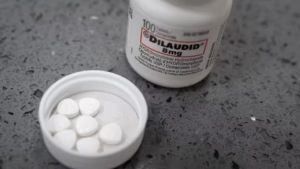
Drug and Alcohol Rehab for Couples
Drug and alcohol rehab for couples is a specialized form of treatment that helps partners work on recovery side by side. Unlike traditional rehab programs, couples rehab addresses not only substance use disorders but also the relationship patterns that often fuel them.
These programs typically combine individual therapy, couples counseling, group support, and medical care to create a comprehensive path forward. The idea is simple but powerful: when both partners are struggling, recovery is often stronger when they face it together.
Couples rehab doesn’t mean every session is joint—each partner gets personal care, while also learning how to build healthier communication, set boundaries, and support one another. It’s about breaking cycles of addiction while strengthening the relationship foundation.
For many couples, this type of treatment offers hope that recovery can lead not just to sobriety but also to a healthier, more connected partnership.
Why Couples Choose to Recover Together
Addiction rarely affects one person in isolation—it often ripples through relationships. For couples, this can mean cycles of codependency, conflict, or enabling behaviors. Rehab tailored to couples aims to untangle these patterns while also promoting healing.
Here’s why many couples seek treatment together:
- Shared Accountability: Going through recovery at the same time can keep both partners motivated.
- Repairing Trust: Counseling sessions provide space to rebuild honesty and strengthen bonds.
- Breaking Unhealthy Cycles: Many couples find that addiction has shaped their relationship dynamic; rehab helps reset that balance.
A recent study published in the Journal of Substance Abuse Treatment found that couples who participated in joint therapy reported higher rates of relationship satisfaction and longer-lasting sobriety compared to those in individual-only programs. That statistic is hopeful—it means recovery doesn’t just heal the individual, it can heal the relationship.
“When partners work on recovery together, they learn to support sobriety as a team. That shared commitment often makes the difference between relapse and resilience.”
What Couples Rehab Looks Like in Practice
If you’re wondering what to expect, couples rehab isn’t a one-size-fits-all experience. Programs may be residential or outpatient, depending on the severity of the addiction and the couple’s needs.
A typical approach might include:
- Individual Treatment: Detox, personal therapy, and medical support.
- Couples Therapy: Sessions that focus on communication, conflict resolution, and boundary setting.
- Group Programs: Peer support where couples share their journey with others facing similar struggles.
- Aftercare Planning: Tools and strategies for staying sober together once treatment ends.
It’s important to note that couples rehab is not about “saving the relationship at all costs.” The main priority is always individual health and safety. Sometimes, treatment may reveal that the healthiest path forward is recovery apart. But for many, the process becomes a bridge to a stronger partnership.
Think of it like learning to dance again. At first, it feels awkward, you step on each other’s toes—but with guidance and practice, you find a rhythm that works in harmony.
Recap, Key Takeaways, and Expert Thoughts
Here’s what matters most:
- Couples rehab treats both addiction and relationship patterns at the same time.
- Recovering together offers accountability, healing, and the chance to rebuild trust.
- Treatment is tailored—combining individual care with joint support.
- The ultimate goal is lasting sobriety and healthier connections, whether together or apart.
Expert Takeaway: Addiction recovery is challenging, but couples don’t have to face it separately. With the right support, rehab can transform not only lives but also relationships.
Reviewer’s Note: From my perspective, couples rehab shines because it acknowledges the truth: addiction impacts more than the individual. Healing as a unit can be deeply rewarding, but it requires courage, honesty, and willingness from both partners. If you and your partner are considering this path, know that you’re not just fighting for sobriety—you’re building a stronger, more resilient future together.



 Reviewed by:
Reviewed by:  Written by:
Written by: 




 FindTreatment.gov
FindTreatment.gov